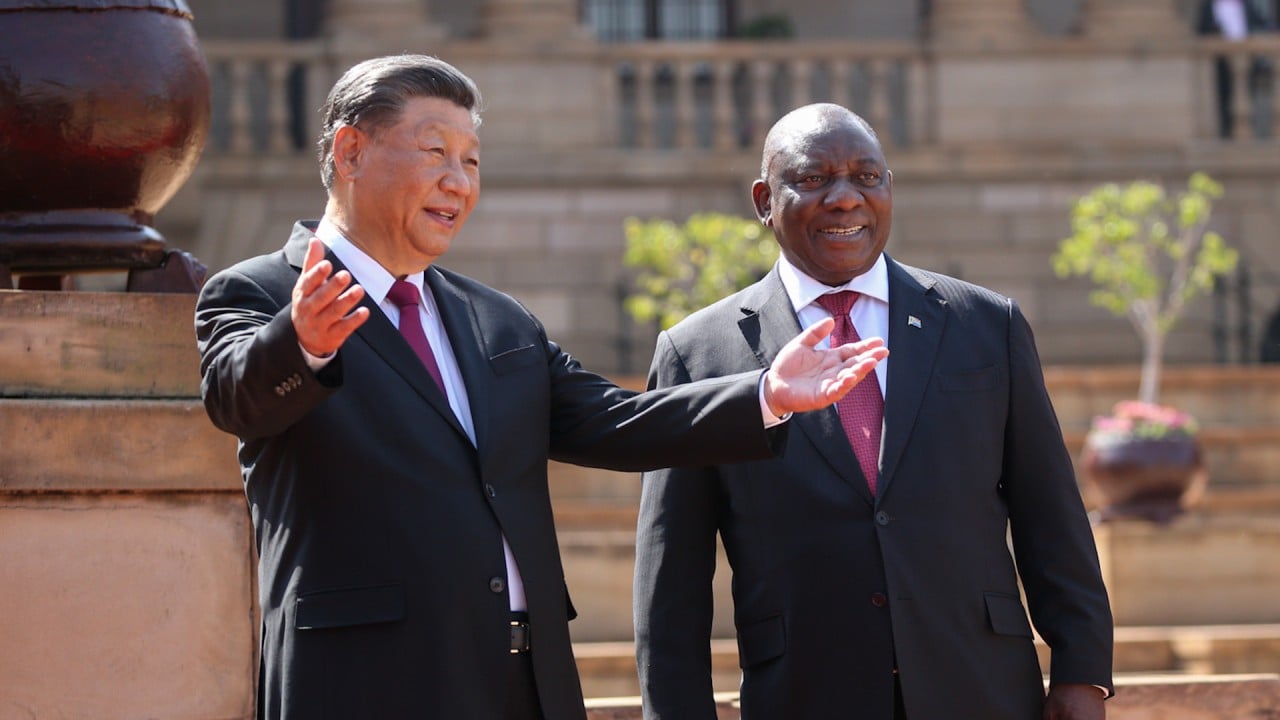Analysts say the expansion of BRICS helps China, but the larger bloc may bring new risks and conflicts

“It clearly indicates China’s increasing influence, not only in economic matters but also in diplomatic consultations,” Semaan said.
Analysts: New BRICS members boast of oil, deep pockets and strategic locations
Analysts: New BRICS members boast of oil, deep pockets and strategic locations
In recent years, Beijing has sought to push for an alternative model of global governance, especially for developing countries, while challenging the existing US-led global order.
Asked about the development on Monday, Chinese Foreign Ministry spokesman Wang Wenbin said that BRICS members do not advocate confrontation between the bloc and that the expansion “is consistent with the historical trend and common aspiration of developing countries.”
“It will certainly promote multipolarity in the world and greater democracy in international relations,” he added.
Having Middle Eastern and African countries join BRICS would “add another geopolitical layer” to Beijing’s influence, as the regions are key components of China’s Belt and Road Initiative, according to Alessandro Arduino, associate lecturer at the Lau China Institute at King’s College London. .
Arduino said the selection of new members was predictable and similar to the strategy China used to expand the SCO.
“The similarity with the Shanghai Cooperation Organization is significant and indicates that BRICS is accelerating expansion in the (Middle East and North Africa) region,” he said.
Another example of the bloc’s expansion in the Middle East, he said, was the UAE’s 2021 approval of the New Development Bank, a multilateral bank set up by BRICS members to finance infrastructure development in emerging economies.
Xi is in a whirlwind of meetings with leaders of the Global South on the sidelines of BRICS
Xi is in a whirlwind of meetings with leaders of the Global South on the sidelines of BRICS
For the six new BRICS members — as well as others from the global south who have expressed interest in joining the bloc — admission to the group will be part of a strategy to “protect their interests in the rapidly evolving global governance landscape,” Ardoino said. .
He said they were “hedging their bets, even (for) countries that depend on the security architecture led by the United States.”
Semaan added that these countries do not want to end their relations with the West, but are keen to “add new options” through initiatives led by Beijing or Moscow. For example, while Saudi Arabia was in the process of joining BRICS, it was also negotiating a major security agreement with Washington.
“It builds on a broader dynamic that sees Middle Eastern countries diversify their diplomatic arrangements,” he said.
Semaan said the new BRICS members also indicate that they should be seen as important regional players in an evolving international environment.
If things collapse between Riyadh and Tehran, the international entities involved in each are likely to fall out
Wang Huiyao, founder of the Beijing-based think tank Center for China and Globalization, said the growth of BRICS shows China’s intentions to promote economic cooperation, especially among developing countries.
“The European Union, China and the United States are the three largest economies, and they have the responsibility and duty to help the global south and work together,” he said.
Samaan said modernizing the BRICS group – which will soon include major oil producers – could mean increased cooperation and coordination on energy policies.
According to analysts, the acceptance of oil-rich countries is in line with the bloc’s plans to use local currencies and reduce dependence on the US dollar.
Xi and Modi agree to prioritize de-escalation efforts on the Himalayan border
Xi and Modi agree to prioritize de-escalation efforts on the Himalayan border
At the same time, Arduino said, countries such as Ethiopia and Argentina can benefit from the bloc’s financial frameworks, including the Liquidity Stabilization Fund, and access lines of credit for development projects.
But it remains to be seen what the BRICS can do as a bloc. While the expansion of BRICS may mean broader consultations on various issues, Semaan said that does not mean that there will be more motivation to support a common agenda.
He said the bloc looked like other multilateral initiatives aimed primarily at bringing together political leaders for occasional consultations but did not have the capacity to pursue specific policies.
The expansion of BRICS may also lead to greater difficulties for the bloc to reach a common agreement on security and economic issues.
Semaan said the “multilateral mentality” prevalent among Middle Eastern countries “worked on a superficial level” in terms of diplomatic stances, “but it becomes more difficult when you start discussing critical security issues” such as the rivalry between the United States and China or the war in Ukraine.
Ardoino said there were already hurdles among the five current BRICS members, such as China’s complex relationship with India, and expanding the group could lead to “more expectations and sometimes conflicting motivations”.
Recruiting both Iran and Saudi Arabia – which restored diplomatic relations only this year – at the same time could create risks for the group.
Samaan noted that despite the agreement brokered by China between the regional rivals, no significant progress has been made so far in resolving the war in Yemen, and the Iranian nuclear program is steadily advancing.
“If things collapse between Riyadh and Tehran, the international entities involved in each are likely to come into conflict,” he said.
“BRICS membership does not come with the demand or expectation of the kind of political or diplomatic solidarity that would lead to collective action within or outside the group,” said Cha Daojiong, a professor at Peking University’s School of International Studies. He added that the bloc had no “clearly defined opponents”.
“This is a difficult idea for those who are accustomed to formulating ‘for or against’ foreign policy to deal with.”
Source link






